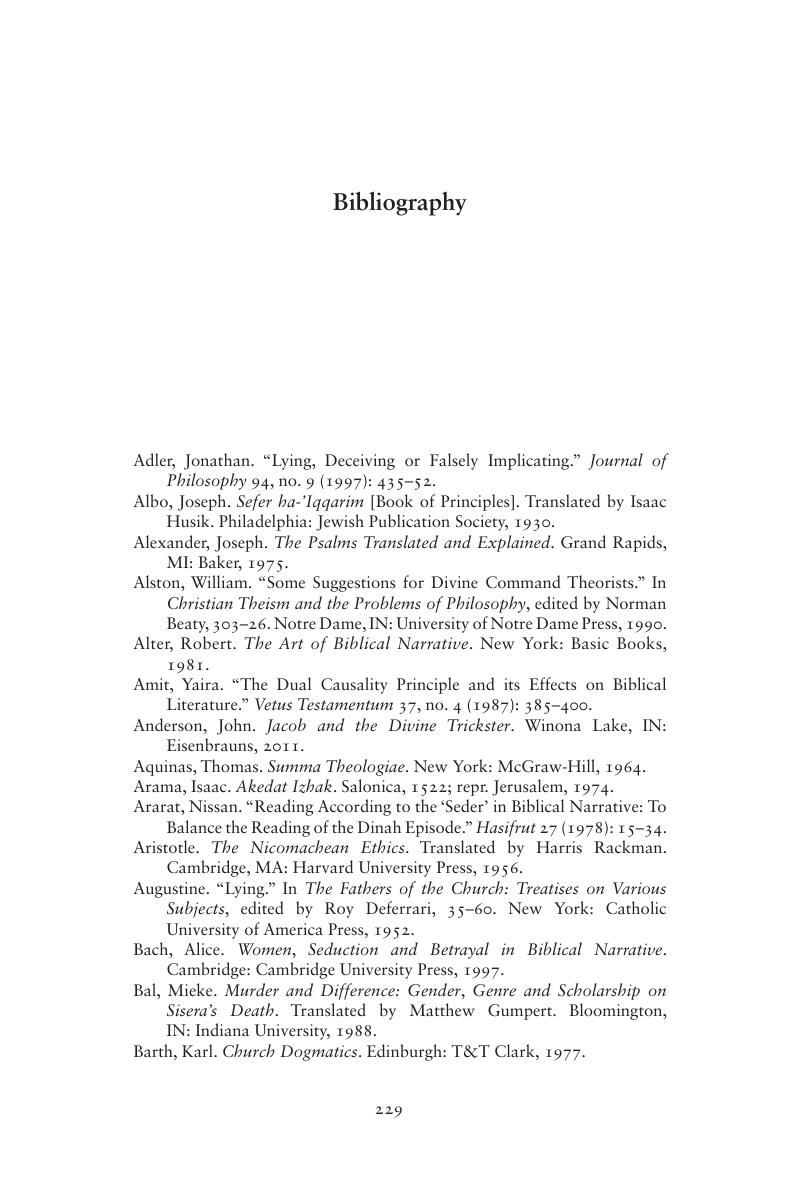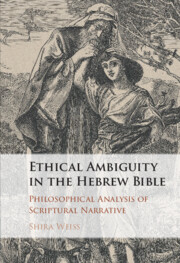Book contents
- Ethical Ambiguity in the Hebrew Bible
- Ethical Ambiguity in the Hebrew Bible
- Copyright page
- Dedication
- Contents
- Acknowledgments
- 1 Introduction
- 2 Divine Command Morality
- 3 Divine Justice
- 4 Ethics of Price Gouging
- 5 Ethics of Deception
- 6 Ethics of Spy Seduction
- 7 Conclusion
- Appendix Ethics of Treatment of War Captives
- Bibliography
- Scriptural and Rabbinic References
- General Index
- References
Bibliography
Published online by Cambridge University Press: 31 August 2018
- Ethical Ambiguity in the Hebrew Bible
- Ethical Ambiguity in the Hebrew Bible
- Copyright page
- Dedication
- Contents
- Acknowledgments
- 1 Introduction
- 2 Divine Command Morality
- 3 Divine Justice
- 4 Ethics of Price Gouging
- 5 Ethics of Deception
- 6 Ethics of Spy Seduction
- 7 Conclusion
- Appendix Ethics of Treatment of War Captives
- Bibliography
- Scriptural and Rabbinic References
- General Index
- References
Summary

- Type
- Chapter
- Information
- Ethical Ambiguity in the Hebrew Bible<I>Philosophical Analysis of Scriptural Narrative</I>, pp. 229 - 242Publisher: Cambridge University PressPrint publication year: 2018



